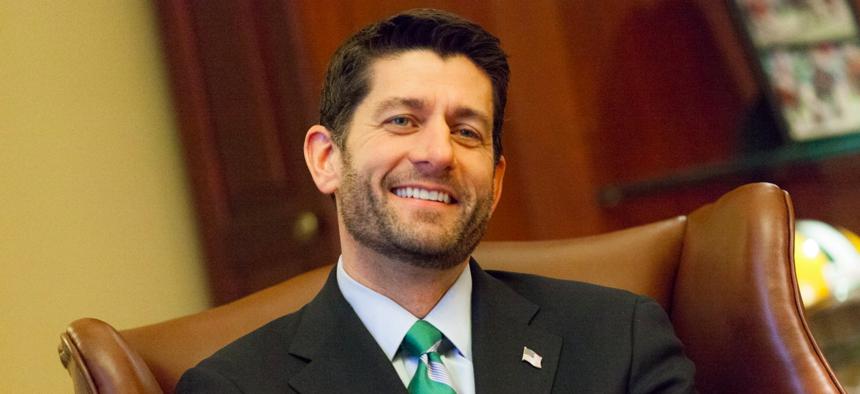
House Speaker Paul Ryan
Why Paul Ryan Didn’t Shut Down the Government
It wasn’t because he was concerned about civilian agencies being forced to close.
In his first weeks on the job, House Speaker Paul Ryan faced a whole bunch of “first tests.” But none was bigger than trying to avoid a government shutdown when the continuing resolution keeping agencies open expired in early December.
In an appearance Tuesday on conservative talk radio host Bill Bennett’s show, Ryan was asked why he didn’t just let government shut down. Here’s what he said:
We didn’t want to hurt the military. Shutting it down deprives the troops of their pay. It deprives the men and women who are out there fighting for us of their resources. You’ve heard me as a strong, strong critic of Obama’s foreign policy and his ISIS policy. We have to go on offense in the war on terror. We have to go on offense internationally. By shutting the government down, you are bringing the military to a screeching halt. We do not want to use the men and women in our uniform as political pawns in this game. We want to get this behind us.
This is interesting on several levels. First of all, it’s a little misleading to say a shutdown “deprives the troops of their pay.” While shutdowns raise the possibility that military service members will see a delay in their paychecks, they are among those required to work during a lapse in appropriations, and their pay is ultimately guaranteed. And Congress can always act to make sure they get paid in a timely fashion. This has happened in the past, and likely would have in the event of a shutdown this year, too.
Likewise, the operations of the military do not come to a “screeching halt” during a shutdown. Not only are uniformed service members excepted from furloughs, many defense civilians stay on the job, too. And recent trends indicate the number of civilians subject to furloughs would remain relatively small. During the 2013 shutdown, the Pentagon recalled nearly all of its 400,000 furloughed civilians after about a week, declaring that they were in fact exempt from temporary layoffs.
The more dramatic effect of shutdowns is on civilian federal agencies--and, one could argue, on the economy as a whole, as critical government functions are forced to cease. The biggest impact is on federal employees who are declared “non-excepted” from furloughs when funding runs out (or worse, incorrectly labeled “nonessential”).
But Paul Ryan doesn’t seem to be greatly concerned about their fate.
Listen to Ryan on Bill Bennett’s show:
NEXT STORY: Wasteful Government Project or Indie Rock Band?







